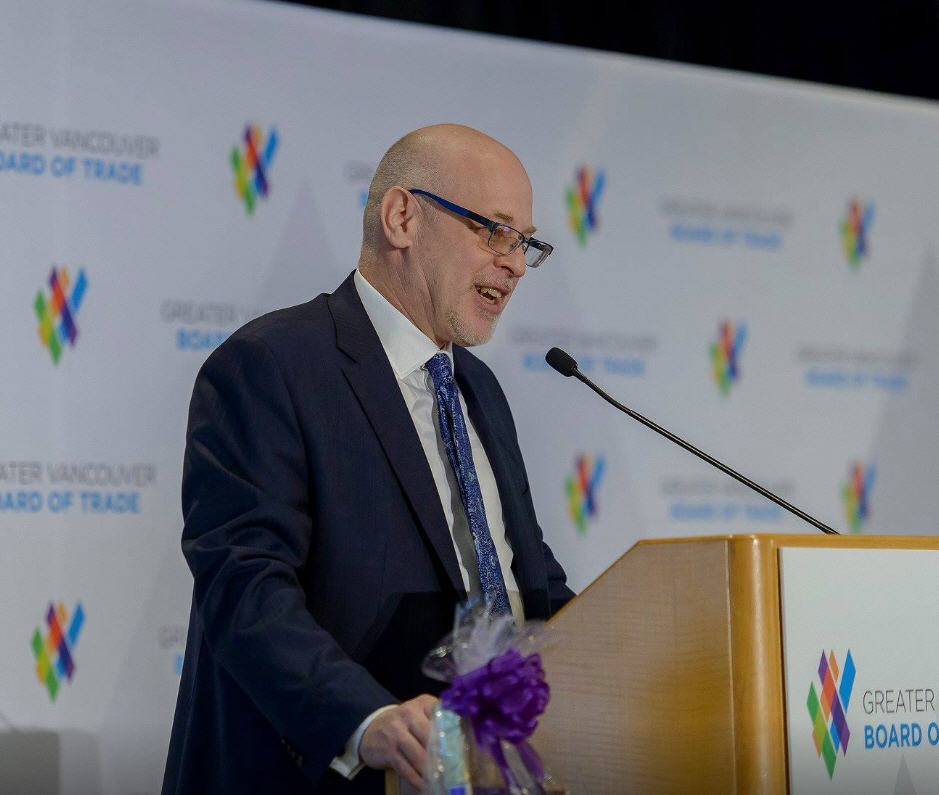Headwinds on horizon for Canadian mining, industry official warns

The high-profile nature of Canada’s controversial Trans Mountain pipeline expansion project is hurting the country’s mining industry, says industry association president Pierre Gratton.
“That is casting a pall, a cloud over Canada as an investment destination,” said Gratton, president and CEO of the Mining Association of Canada.
“We really need to get some resolution around Trans Mountain, get access to tidewater and move forward as a country thereafter, because it’s affecting the rest of the resource sector, I think, quite negatively.”
Gratton was the latest executive to tell Greater Vancouver Board of Trade members that Canada’s competitiveness on the world stage is slipping. On top of trade uncertainty, commodity price volatility and issues concerning taxation, the former head of the Mining Association of British Columbia said capital that could be coming to Canada is instead flowing to mining jurisdictions like Australia and Chile.
In 2017, investments in mining accounted for 37% of total foreign direct investment (FDI) in Australia, a share worth nearly $300 billion. The same year, mining-related FDI into Canada was worth just over $28 billion, or 2.5% of total Canadian FDI.
Australia has also overtaken Canada as the world’s second-largest mining supplier.
“If all governments, including B.C.’s, move forward with this (pan-Canadian plan), I think it will make a difference to how Canada is viewed.”
“This is the sixth consecutive year that we’ve lost our percentage share of global international exploration investment,” said Gratton. “Over the past five years, Canada has lost ranking for seven of 16 commodities for which it is a top-five producer.”
When foreign investors look at Canada, he said, they see a system that fails to deliver major infrastructure projects efficiently.
A significant portion of Gratton’s keynote address focused on Bill C-69, which overhauls Canada’s regulatory review process and is currently before Canada’s Senate. While it brings changes to a system he says is responsible for “longer timelines, unco-ordinated and unpredictable reviews and, in some cases, unjustified roadblocks,” Gratton argued that the country’s mining industry has been a secondary consideration during the government’s review.
“We’re still working on the details, and details matter. And I’d not be telling the truth yet to say we’re happy with the outcome at this point in time,” Gratton said.
“We’re not saying that this is going to be a wonderful bill. We’re saying it’s better … for most of the mining industry than the current regime, and that’s as far as we’re really going.”
He said senators are open to hearing industry concerns before the bill moves forward. He also said he is “cautiously optimistic” that government as a whole is listening to broader industry concerns about Canada’s tax competitiveness, the need for infrastructure spending in the country’s North and on long-standing transportation issues.
Despite a raft of regulatory concerns and global trade turmoil, Gratton’s address comes at a time when he says the industry has a bit more spring in its step.
He told attendees to expect the Canadian Minerals and Metals Plan later this year: a pan-national plan intended to solidify the country’s position as a global mining leader, while respecting climate change realities and the country’s commitments to the rights of Indigenous Peoples.
The plan was called for in August 2017. It would follow the 1994 Whitehorse Mining Initiative, which was signed by federal, provincial and territorial governments as well as industry, labour, environmental and Indigenous leaders.
“While I was initially a bit cynical, skeptical about what a pan-Canadian plan might deliver, some of the early signs are actually quite encouraging,” Gratton said.
“If all governments, including B.C.’s, move forward with this, I think it will make a difference to how Canada is viewed.”
(By Hayley Woodin)
{{ commodity.name }}
{{ post.title }}
{{ post.date }}




Comments